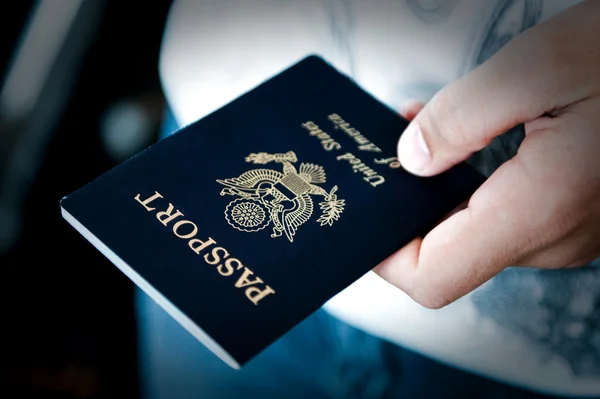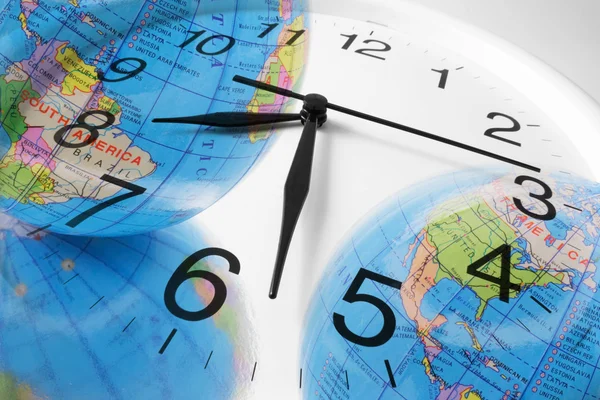Everyone thinks they’re a master packer until they’re standing in a hotel lobby at midnight, realizing they forgot something crucial back home. Travel preparation might seem straightforward—throw some clothes in a suitcase and head to the airport, right? Wrong. The devil’s in the details, and those forgotten essentials can turn dream vacations into expensive headaches.
Seasoned travelers develop mental checklists through years of trial and error, learning from mistakes that cost them time, money, and peace of mind. Here are 15 things people consistently forget to check before leaving for their trips.
Passport Expiration Date

Your passport might look perfectly valid, but many countries require six months of remaining validity before they’ll let you enter. That March 2025 expiration date becomes a problem if you’re traveling in September 2024.
Some destinations are stricter than others—European countries often enforce this rule religiously, while others might be more flexible. Check your expiration date months before booking international flights, not days before departure, when renewal becomes a rush job that costs extra fees.
Phone International Plan

Nothing kills vacation vibes quite like a $3,000 phone bill waiting at home because you forgot to activate international roaming. Cell phone companies love charging premium rates for overseas usage, turning your innocent Instagram posts into costly surprises.
Some carriers offer temporary international plans that cost a fraction of surprise roaming charges. Download offline maps and translation apps before you leave, since data becomes precious when you’re paying by the megabyte in foreign countries.
Like Travel Pug’s content? Follow us on MSN.
Credit Card Travel Notifications

Banks assume someone stole your card when purchases suddenly start appearing from Thailand or Turkey. They’ll freeze your account as a security measure, leaving you stranded without access to money in unfamiliar places.
Most banks allow you to set travel notifications online or through mobile apps, but this takes literally two minutes, yet it’s always forgotten. Having backup payment methods helps, but preventing the freeze in the first place saves enormous hassle when you’re jet-lagged and trying to pay for transportation.
Prescription Refills

Running out of essential medications while traveling abroad creates genuine health emergencies that ruin entire trips. Foreign pharmacies might not carry your specific medications, or they might require prescriptions from local doctors who don’t speak your language.
Insurance companies sometimes allow early refills for travel purposes, but this requires planning rather than last-minute requests. Pack medications in original bottles with prescription labels, since customs officials question unmarked pills in random containers.
House Sitting Arrangements

Coming home to dead plants, spoiled food, and a mailbox stuffed with packages announces to the entire neighborhood that nobody’s been around for weeks. Burglars notice these obvious signs of vacancy and plan accordingly. Even close friends need detailed instructions about watering schedules, mail collection, and emergency contacts.
Some homeowners forget to mention important details like alarm codes or pet feeding routines until they’re already at their destination thousands of miles away.
Like Travel Pug’s content? Follow us on MSN.
Auto Insurance Coverage

Rental car companies sell expensive insurance policies to travelers who don’t realize their auto insurance might already cover rentals. Credit cards sometimes include rental car protection as a cardholder benefit, but the coverage varies significantly between different companies and card types.
International rentals create additional complications since domestic policies might not extend overseas. A quick phone call to your insurance agent before traveling can save hundreds of dollars in unnecessary coverage purchases.
Weather at Destination

Packing summer clothes for what you assume will be tropical weather becomes embarrassing when you discover it’s actually monsoon season or unexpectedly cool temperatures. Weather patterns vary dramatically by region and season, especially in countries that experience different seasons than your home location.
Mountain destinations can be surprisingly cold even during summer months, while coastal areas might be windier than expected. Check both current weather and historical averages for your travel dates rather than making assumptions.
Electrical Outlet Compatibility

American plugs don’t work in European outlets, turning your devices into expensive paperweights without proper adapters. Different countries use various plug configurations and voltage standards that can damage electronics if you’re not prepared.
Universal adapters work for most destinations, but some countries use unique outlet designs that require specific converters. Voltage differences between countries can fry devices that aren’t designed for international use, making surge protectors with built-in conversion essential for expensive electronics.
Like Travel Pug’s content? Follow us on MSN.
Vaccination Requirements

Some countries require specific vaccinations before they’ll grant entry visas or allow you past immigration checkpoints. Yellow fever certificates are mandatory for certain African and South American destinations, while other regions might require hepatitis or typhoid immunizations.
These vaccines sometimes need weeks to become effective, making last-minute appointments useless for immediate travel plans. Travel medicine clinics specialize in destination-specific health requirements, but appointments fill up quickly during peak travel seasons.
Time Zone Differences

Scheduling important calls or meetings without considering time zone differences creates awkward situations where you’re calling people at 3 AM their local time. Jet lag affects your judgment for several days after arrival, making it difficult to calculate time differences accurately when you’re exhausted.
Some countries use half-hour or quarter-hour time zone offsets that confuse standard calculations. Setting multiple world clocks on your phone before departure helps avoid embarrassing scheduling mistakes with business contacts or family members.
Local Customs and Etiquette

Innocent gestures or clothing choices that seem perfectly normal at home can be deeply offensive in other cultures. Conservative countries have strict dress codes that they enforce seriously, especially at religious sites or government buildings.
Tipping practices vary dramatically between cultures—some consider it insulting while others expect generous gratuities for standard services. Learning basic cultural norms prevents uncomfortable situations where you accidentally disrespect local traditions through ignorance rather than malice.
Like Travel Pug’s content? Follow us on MSN.
Emergency Contact Information

Travel insurance becomes worthless if you can’t find the contact numbers when actual emergencies happen. Embassy information for your home country provides crucial assistance during serious problems abroad, but most people don’t know how to reach diplomatic services.
Medical emergency contacts should include both your regular doctors and travel insurance providers who can coordinate care in foreign hospitals. Store this information both digitally and on paper, since phones break or get stolen precisely when you need them most.
Backup Transportation Plans

Flight cancellations and delays disrupt carefully planned itineraries, especially when connecting flights are involved. Alternative airports sometimes offer better options during weather-related shutdowns or airline strikes that affect major hubs.
Ground transportation between cities provides backup options when air travel becomes unreliable due to mechanical problems or scheduling conflicts. Some destinations have limited transportation options that require booking, making spontaneous changes difficult when original plans fall through.
Document Copies

Losing your passport in a foreign country becomes a bureaucratic nightmare that consumes days of your vacation, dealing with embassy procedures. Separate copies of important documents help speed replacement processes when originals get lost, stolen, or damaged during travel.
Cloud storage services allow access to document copies from anywhere with internet connectivity, but physical copies provide backup when technology fails. Some countries require multiple forms of identification for various activities, making copies essential for situations where you need to surrender documents temporarily.
Like Travel Pug’s content? Follow us on MSN.
Currency Exchange Rates

Airport currency exchanges offer terrible rates that cost travelers significant money compared to other options. Banks and credit unions often offer better rates for members, but they need advance notice to order foreign currency.
ATMs in destination countries typically offer competitive rates, but foreign transaction fees from your home bank can add up quickly. Some credit cards waive international fees entirely, making them better options than cash for most purchases in countries with reliable payment processing systems.
The Details That Make or Break Trips

Travel preparation extends far beyond packing clothes and booking flights—the forgotten essentials often determine whether trips become cherished memories or expensive lessons in planning. Experienced travelers develop systematic approaches to pre-trip preparation because they’ve learned that small oversights create disproportionately large problems when you’re far from home.
The most successful trips happen when careful planning becomes invisible, allowing you to focus on enjoying new experiences rather than solving preventable problems.
More from Travel Pug

- 20 Best Beach Towns in the Carolinas
- 13 Destinations Where Tourists Regularly Regret Their Trip
- 20 Things You Actually Get in First Class
- 20 Small Airports With Aviation Museums
- 20 Places in the U.S. That Are Perfect for a Reset Trip
Like Travel Pug’s content? Follow us on MSN.
